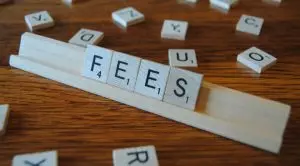 Florida is on the brink of incurring massive legal expenses to the amount of $450,000 after a judge sided with nine operators of card rooms in Miami, Jacksonville, and West Palm Beach, among other parts of the Sunshine State, and ruled in their favour in a dispute over what are known as “designated player” games.
Florida is on the brink of incurring massive legal expenses to the amount of $450,000 after a judge sided with nine operators of card rooms in Miami, Jacksonville, and West Palm Beach, among other parts of the Sunshine State, and ruled in their favour in a dispute over what are known as “designated player” games.
The state’s law distinguishes between two types of gambling games, the first ones being the so-called “banked games” where the casino sets up a bank against participating players, pays out winning bets, and collects losing ones. In contrast, pari-mutuel establishments are permitted to host only games where the players are not competing against the house but against each other.
Florida gambling regulators wanted to abolish the rules for the designated-player games in 2015 but without introducing other regulations in their place. They argued that since one of the players sitting at the table assumed the role of a bank and other participants were playing against him or her, these were practically still banking games disguised as designated-player games.
The regulators had nothing against the games themselves but insisted the manner in which they were conducted was in sharp violation of the gambling laws of the state. However, the plans were only to remove existing regulations that had to do with the said games without introducing new ones. Since designated-player games have become extremely popular following their introduction in 2012 and are offered by the majority of pari-mutuel card rooms in the state, many gambling operators argued the removal of the regulations would be the beginning of the end of a gambling product which generates $87 million in annual revenue.
The operators’ lawyers succeeded in convincing Administrative Law Judge E. Gary Early that the removal of the regulations in practice would equal prohibiting the card rooms from offering the popular games. Judge Early took the side of the Florida card-rooms and ruled out that the regulators cannot abolish the rules, responsible for the operation of the designated-player games without introducing new regulations in their place.
The Operators’ Lawyers Insist on Collecting $450,000 in Legal Fees
 Last month, the Court of Appeals upheld the decision of Judge Early. This enabled lawyers Christopher Kise and John Lockwood, who represented a total of nine gambling operators, to advance with the request of their legal fees.
Last month, the Court of Appeals upheld the decision of Judge Early. This enabled lawyers Christopher Kise and John Lockwood, who represented a total of nine gambling operators, to advance with the request of their legal fees.
According to state laws, the legal fees in such disputes are capped at $50,000. Now Kise and Lockwood insist that they are entitled to $50,000 for each of the nine gambling operators they were representing, for a total of $450,000. The state of Florida is of a different opinion and insists that the two lawyers must split the capped amount of $50,000 in fees between themselves. Attorney Lockwood who represented seven of the operators argued the case was very costly to litigate and therefore the card rooms want to recoup as much of their expenses as possible.
Judge Early has given Lockwood and Kise until January 11, 2018 to prepare memorandums which must include legislative history to help him settle the dispute over the fees. Ruling in favour of the two attorneys would result in huge expenses for the state of Florida.
This is not the first time designated-player games have caused controversy in the Sunshine State. Last year, they were the main reason for a heated dispute between the Seminole Tribe and the state of Florida which questioned the Seminole’s right to host blackjack games in its gambling venues. U.S. District Judge Robert Hinkle ruled the designated-player games offered by gaming venues disagreed with the tribe’s exclusive rights to host banked games until 2015. Judge Hinkle sided with the Seminoles, allowing them to host blackjack games until their agreement with the state expires in 2030.
- Author


